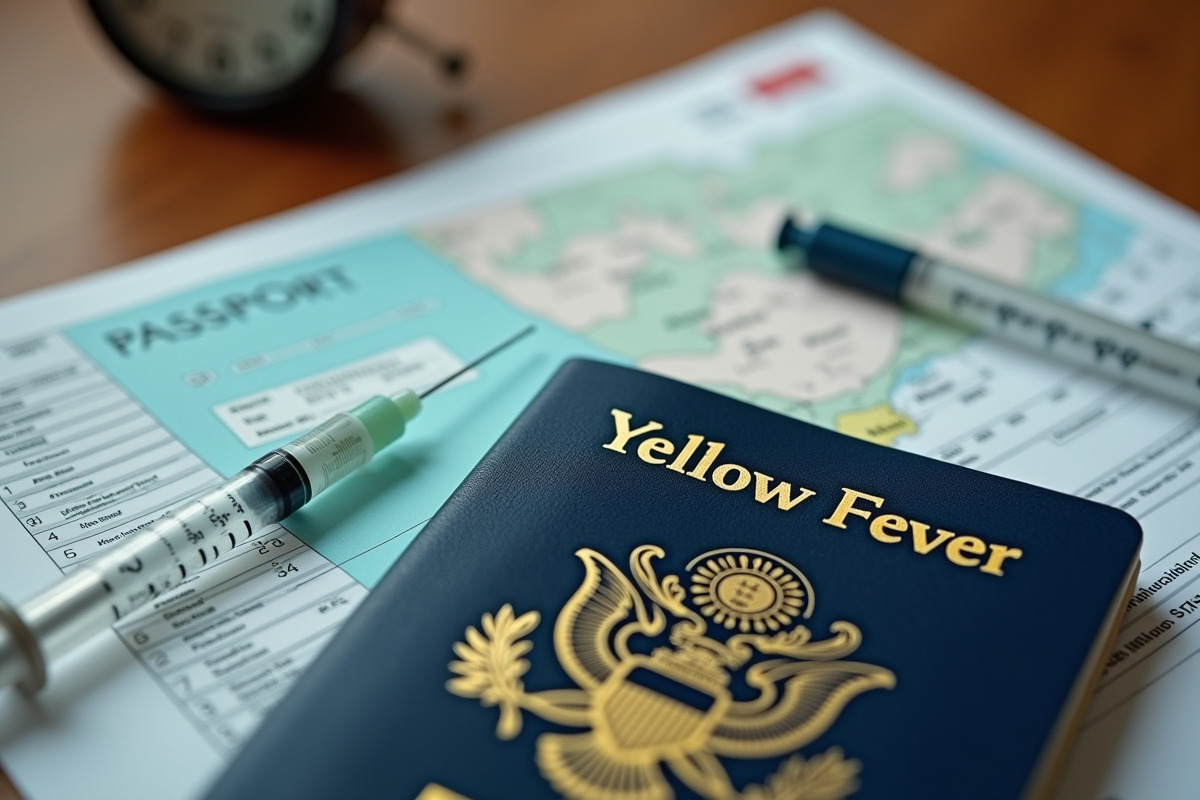The issue of the yellow fever certificate directly affects the safety of travelers. A document often underestimated, it represents a crucial health concern in the face of a potentially lethal infection. _The absence of this certificate exposes travelers to the risk of denial of entry._ Vaccination and certification are closely linked, being the key to entering endemic zones. _The legal consequences are severe, with quarantine being a possibility._ This observation becomes alarming as climate change amplifies the spread of vectors, notably the mosquito *Aedes aegypti*. _Preventive vaccination is thus imperative to protect lives._
| Key Facts |
|---|
| A vaccination certificate against yellow fever is mandatory to enter several endemic countries. |
| The absence of this certificate can lead to a denial of entry or a quarantine. |
| Yellow fever is a viral disease transmitted by the mosquito Aedes aegypti, which can be fatal. |
| Approximately 200,000 cases of yellow fever are reported each year, resulting in around 30,000 deaths. |
| Vaccination is the most effective means to prevent this serious disease. |
| It is essential to get vaccinated at an authorized center to obtain the certificate. |
| The absence of a certificate exposes the traveler to direct health risks and consequences for public health. |
| Local epidemics can occur if the virus is imported into non-endemic regions. |
Vaccination Requirements for Yellow Fever
The vaccination certificate against yellow fever is of paramount importance for anyone planning to travel to endemic areas. Several countries, particularly in Africa and South America, impose this document, essential to prove your immunization against this potentially lethal viral disease. Travelers must anticipate this requirement, as traveling without this certificate can have serious repercussions.
Health Risks Associated with the Absence of Certificate
Not being vaccinated against yellow fever significantly increases the risk of contracting this disease. Transmitted by the mosquito Aedes aegypti, yellow fever can lead to symptoms such as high fever, hemorrhagic syndrome, and severe complications. Moreover, unvaccinated travelers may face hospitalization or even long-lasting sequelae. Vaccination protection thus constitutes an essential barrier against this formidable viral infection.
Legal Consequences and Travel Restrictions
The consequences of not having a yellow fever certificate go beyond health risks. Many countries enforce strict travel restrictions on individuals lacking this document. Authorities may deny entry, cause flight cancellations, or impose quarantine. These measures aim to protect public health by preventing the spread of the virus.
Obtaining the Vaccination Certificate
Receiving the vaccination certificate requires visiting an authorized center for vaccination. These facilities are often associated with public health organizations and have qualified professionals to administer the vaccine. The vaccine used, Stamaril®️, provides lasting immunity and is the best protection against yellow fever.
Implications for Public Health
The spread of yellow fever in a non-endemic country poses significant challenges for public health. The return of an infected traveler can trigger local epidemics, jeopardizing all sanitary measures implemented. The financial and logistical impacts resulting from necessary treatments and quarantines can be devastating for health systems.
Prevention and Awareness
Vaccination remains an essential preventive measure against yellow fever. Raising awareness about the importance of this certificate must be strengthened among travelers. Information campaigns can reduce risky behaviors and promote public health. Adhering to health recommendations will ensure a safe and serene journey.
Issues Related to Population Movements
International migrations and population mobility make the issues related to yellow fever even more relevant. Climate change increases the spread of mosquito vector species, heightening the risks of infection even in newly affected regions. Training and informing travelers, both quantitatively and qualitatively, is key to limiting the spread of this disease.

Conclusion on Health and Economic Consequences
Awareness of the issues related to the yellow fever certificate is a requirement for every traveler. Not complying with this administrative requirement can lead to serious consequences not only for oneself but also for the health of local communities. Avoiding health complications and preserving health systems requires a serious commitment to meet vaccination obligations. Collective vigilance will safeguard everyone’s health.









